
It’s no wonder that the term “taxing” implies “difficult or requiring a lot of thinking or work,” as Financial Accounting Tools activities, which include handling and processing payroll, taxes, and payments, are frequently demanding. In reality, if you make certain accounting mistakes when handling your payroll or taxes, you could get in trouble with the government and put your whole business at risk of being illegal in the long run. The same is true for bookkeepers and accountants. If you make a mistake when calculating or preparing a document, your clients will suffer, and your reputation as a trustworthy professional will suffer, too. And this is when accounting tools start to stand out as potential answers to your accounting problems.
15 Best Financial Accounting Tools for Small Business 2022
The following facts regarding the top Financial Accounting Tools are available in this article: So, Financial Accounting Tools make it easy for these Financial Accounting Tools to keep track of their finances and get ready for tax season. Businesses should be aware of the essential features to look for in Financial Accounting Tools. For example, a fashion e-commerce startup may want to keep customer interactions very professional and nice. Then, one of the main Financial Accounting Tools requirements can be custom invoicing. The Software comes in a wide range of styles, energy, and price ranges. Which Financial Accounting Tools to use is influenced by the following factors:
What are the tools of accounting?
Financial Accounting Tools may be used to handle routine chores that often take a lot of time to do, even if you are not tech-savvy. The top accounting tools are excellent for:
- Tracking expenses,
- Producing financial reports,
- Reviewing and auditing records,
- Performing tax calculations, and
- Collaborating with your accounting team.
By creating financial reports, going over and reviewing data, computing taxes, and working with your accounting staff You can automate, accelerate, reduce the possibility of errors, and even save money by using them when doing accounting tools for business chores. Research has also shown that businesses that use automated accounting software are much more likely to succeed than those that only report their finances once a week or once a month.
A sort of accounting technology is also used by roughly 64% of organizations, according to a Statista study. Accounts Payable automation, or AP automation, is the term used to describe the technology used to manage different financial and accounting procedures. According to one infographic, AP automation technologies may help you save at least $16 per invoice.
Which four categories of Financial Accounting tools and software?
According to the educational material from Ohio University’s online master of accounting, we can distinguish between four main styles of accounting:
- Corporate
- Public
- Government
- Forensic
Corporate forensic accounting
First off, the most fundamental form of accounting tools login procedure is corporate accounting, which deals with processing financial data to record tax filings, and bills, and adhering to GAAP (Generally Accepted Accounting Principles).
Regulatory accounting
On the other hand, public accountants often work with people who aren’t big businesses to keep their financial records accurate, complete, and up to date. Public accountants are often hired by small businesses because they tend to focus on specific, small-scale problems.
Public accounting
Municipalities, districts, or states may be the subject of government accounting, which deals with issues that are intimately tied to financial operations within a specific institution. Because government accountants often deal with sensitive information or work with public records, their work is often done in private.
Forensic accounting
Last but not least, forensic accounting of tools and materials is a unique discipline of accounting that calls on a variety of abilities, from in-depth knowledge of accounting principles to investigative analysis. People with experience in forensic accounting are often hired by government agencies so they can do investigations and get financial information from old accounting records. There are three subcategories of fundamental accounting principles that you should be aware of in addition to the primary classification, which is as follows:
- Accounting for management.
- Tax accounting
- Internal vigilance
These areas pertain to acquiring accounting data, following tax laws, and scrutinizing the financial records of a corporation to look for fraud and resource waste anomalies, respectively. Let’s look at the greatest Financial Accounting Tools available now that we have a better understanding of the different forms of accounting.
#1. Xero
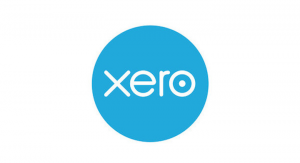
This is a fantastic cloud-based solution for microbusiness entrepreneurs. It is easy to understand and apply. It provides start-ups with helpful basic tools of accounting like online invoicing and the Xero control panel to assist them in better understanding their company and receiving a current snapshot of cash flows. With its mobile app, it’s simple to keep an eye on your expanding startup’s financial health wherever you are.
Features
- If you own an e-commerce or online retail website, this enables you to integrate with POS systems, monitor stock, manage stock, and expedite administrative tasks by connecting to third-party apps.
- For global small businesses, it enables a global reach with a high level of security.
- Memberships with Xero are available for 3 months, and the plans are created based on the extent of the company’s use.
#2. FreshBooks
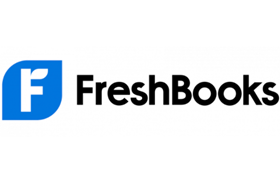
This is ideal for providing services that need a fee, and it is an essential tool for billing. It helps businesses manage expenditures while on the road and makes it easier to create professional invoices. The biggest advantage offered by FreshBooks is its extensive customization options in comparison to other programs. It aids businesses in successfully managing their bookkeeping, in addition to invoicing possibilities. They provide a 30-day risk-free trial.
Features
- Establishing a channel for late cost payments.
- Creation of a repeating profile for automatic billing distribution.
- Establishing a billing plan to control automatic bills.
- Client ideas regarding late payments to assist you to handle situations with the least amount of difficulty.
#3. QuickBooks
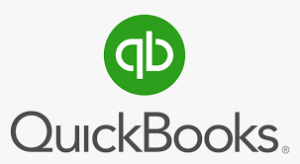
This program is a good pick for independent contractors and professionals. This is a great way for people to understand their tax returns and figure out how much money they made and how much they spent. The app’s ability to distinguish between business and personal expenses is its strongest feature. But because there aren’t many ways to customize it and you can’t bill for it, it’s only good for the groups listed above who are willing to look past this performance.
Features
- Helps you accept credit and debit cards online and provides immediate payable billings.
- Perfectly executed contactless, mobile, and in-person payments.
- If you have an e-commerce setup, it helps process payments, logs transactions, figures out sales tax, and generates receipts.
- enhances all possible app combinations that are necessary to manage your business.
#4. Zoho Books

Small to mid-sized businesses should use this cloud-based accounting system. It provides access points for the ensuing functionalities.
Features
- Many time sheets from different organisations.
- Bank and credit card accounts can be linked by businesses.
- Automate recurring tasks like auto-debits, recommendations, and expense payments.
#5. Profiteer

It’s a Shopify app that can help you keep track of the costs associated with the things your company purchases. Although it does not integrate with your accounting programme, you may easily import the database with the necessary information. The software shows how much your inventory costs and how much money you make over a certain amount of time. It takes into account currency fluctuations.
Features
- also, look at the top business management programs
- Record the sales and unsold inventories.
- -Generate several reports for your review.
- Support in locating discounts to increase sales.
- It is simple to update the product’s specifications and prices.
#6. Simplycost
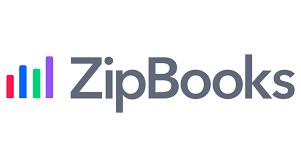
It must be used in conjunction with a Shopify store and enables business owners to add cost pricing and profit tracking. The reports are simple to read and comprehend. Filters in the software let you divide success reports by days, months, suppliers, and orders. It was listed as one of the top Shopify applications.
Features
- Automatic report creation and earnings computation.
- Tracking and reporting of expenses.
- Assists you in reducing the time spent calculating the cost of goods sold.
- Thus, it helps you concentrate on tasks that are more important.
- Aids you in making informed selections about services and how to evaluate revenues.
#7. Accounting Seed
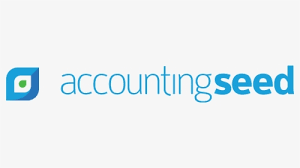
Accounting Seed is a cloud-based accounting platform with secure APIs that are important for your business. It focuses on making your service work with all the important platforms, like vendor markets and bank accounts.
Features
- This makes it easier for you to modify your workflows.
- It automates tedious daily duties.
- Gives you end-to-end visibility into your data and breaks down silos so you can see the big picture.
- Automatic basic journals, accounts payable, financial reporting, etc. are provided. They also offer upgraded control panels for better data visualization.
#8. ZipBooks
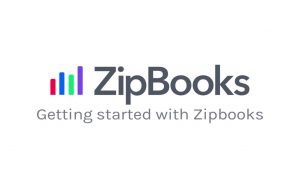
GoDaddy Bookkeeping’s main selling point is the low price of its services and the help it gives with importing and integrating data from well-known websites like Amazon, Etsy, and eBay. This is a really cheap option if you specifically buy from the sites mentioned. You may use it to help you calculate your quarterly tax projections. However, it doesn’t go into great detail on capabilities for worldwide billing, extensive reporting, or program management.
Features
- It does away with the need to use its billing functions in a follow-up manner.
- Tracks costs and sales automatically.
- Offers custom billing that looks polished.
#9. GoDaddy Accounting
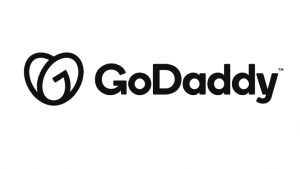
GoDaddy Accounting’s main USP is that it offers a cost-effective solution and makes it easy to connect to and import data from well-known websites like Amazon, Etsy, and eBay. This is a fairly inexpensive choice if you explicitly buy from the websites specified. You may use it to help you calculate your quarterly tax projections. However, it doesn’t go into great detail on program management, thorough reporting, or international billing possibilities.
Features
- It does away with the need to follow up with its billing operations.
- Tracks sales and expenses automatically.
- Offers custom billing that looks polished.
#10. Kashoo
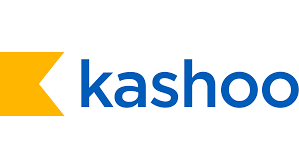
Kashoo assists you in managing your knowledge and carefully classifies it for easy reading and evaluation.
Features
- OCR technology helps to scan and create a digital version of the invoice.
- Intelligent alerts alert you when a client pays you a payment.
- The billing creator enables users to create personalized invoices.
- Up-to-date information about customers, including a list of those who settle their fees the fastest.
#11. OnPay
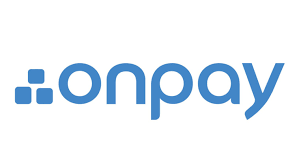
This is a complete payroll system that helps with both accounting and processing all employee information. The reports may be readily altered, and they can also be shown in many ways. The following are the most important conclusions: See also the top scheduling apps.
Features
- Highly accurate automated tax filing and payment processes.
- Pays employees using a variety of payment methods.
- Quickly integrates with other accounting software.
- Migration and setup of accounts.
#12. Wave
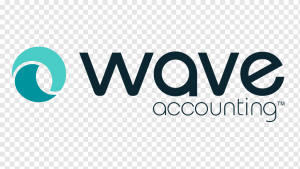
With this fantastic free accounting tools software, you can link to multiple bank accounts, categorize your expenses, and balance book trades. It is ideal for freelancers and small businesses that provide services. Anyone who is looking for a free service but doesn’t want to give up features might choose this tool.
Features
- It is simple and trustworthy.
- Handles capital with ease.
- Gut-feeling suggestions
#13. Sunrise
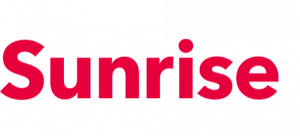
It employs self-service techniques. Users may receive payments easily, do double-entry accounting, and link their banks. It offers insightful advice to help you make wiser business decisions. Additionally, it makes you eligible for tax season.
Features
- Small business owners concentrated solely on billing and accounting.
- Business owners that require assistance with accounting.
- A tax estimator with intuition.
- Easy tracking and integration with payroll applications.
#14. Tsheets
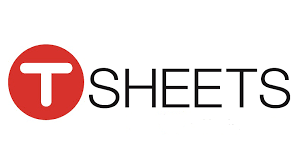
Quickbooks offers Tsheets as an option. This tool will be used in addition to the accounting tool that is already in place. The accounting tool is mostly used to track expenses and profits. It is a crucial time monitoring and accounting tool for small enterprises. With this service, small business owners can easily keep track of their employees’ time sheets. It is simple to integrate with specialized accounting programs like Quickbooks and Xero. As a result, sending your timesheet to the accounting software is simple.
Features
- The app is intuitive, and employees receive updates if their shift changes.
- Simple to manage and track.
- Specific roles, projects, and tasks may be assigned, reducing confusion and boosting employee accountability.
- Aids in maximizing effectiveness.
#15. Expensify
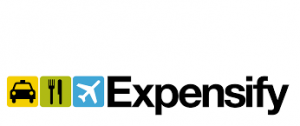
For company owners, keeping track of spending may be time-consuming and repetitive. With the help of this program, you may scan important receipts and group costs into relevant categories. You just need to approve the final report once it codes.
Features
- Assists in worker expense reimbursement.
- Business owners receive a practical, user-friendly tool that streamlines the expense tracking process.
- Assists in importing transactions from business cards.
- Create workflow approvals that match your company’s organisational structure.
- Assists with tax tracking, audits, and compliance in advance.
Last Words
To invest wisely, you must select the best strategy and instrument. You must carefully consider your requirements to avoid acquiring capabilities that you won’t actually use for your service. Your accounting requirements will change over time. This could mean that you need to switch to a tool with more features or upgrade your membership to get more features. Also, you should buy a tool that can be changed to meet the needs of your service development. It will save time. You can avoid a small delay when setting up your tools before you start your accounting work by ignoring how well you know the tool. The choice should be determined following a thorough examination of the demands of the business and a review of the due diligence. The bottom line is that you must comprehend what you are paying for as a business owner.


